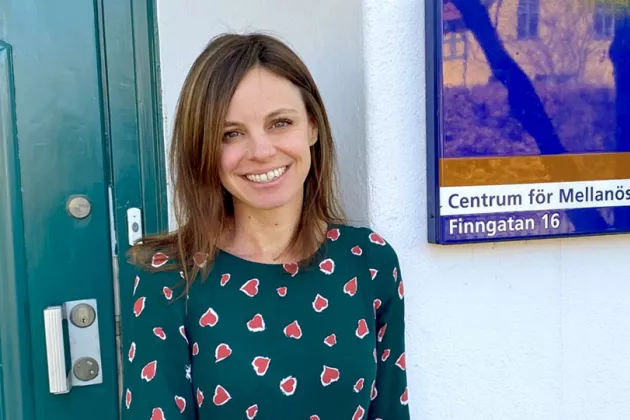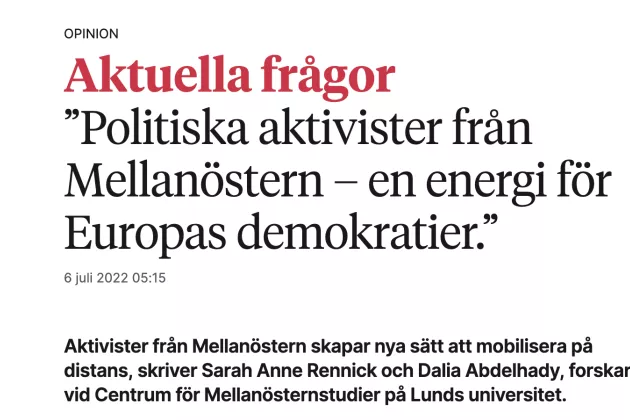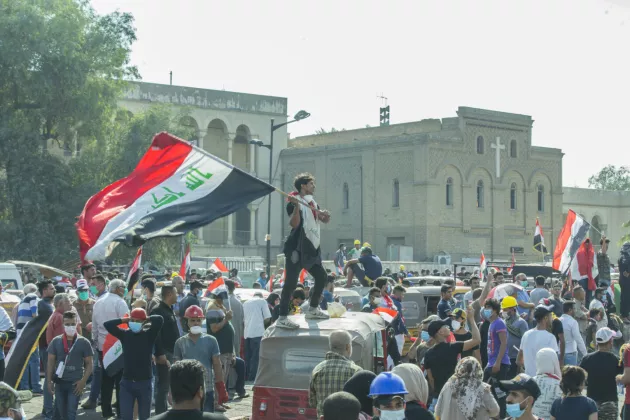The podcast episode (from July 28, 2022) addresses the question of why Tunisia turned its back on democracy. Tunisia was a beacon of hope for democracy after the Arab Spring. The country rid itself of dictator Ben Ali after 24 years of rule and moved to a more democratic system. Now the country seems to be sliding back towards the one man rule that it has known for generations. Tunisian President Kais Saied has drafted a new constitution for Tunisia that gives him new sweeping powers, including authority over the judiciary and immunity for life from prosecution.
Sarah's interview (fast forward to 6:00) addresses the mass uprising in Tunisia in early 2011 and the ouster of authoritarian President Ben Ali. Ben Ali ruled through a "dark bargain" allowing him far reaching control, building a patriarchal state with himself as the father of the nation. Corruption was rife and there was almost no space for oppositional politics. The protesters argued for an end to corruption, social justice and a recalibration of state-society relations, including full and equal citizenship.




